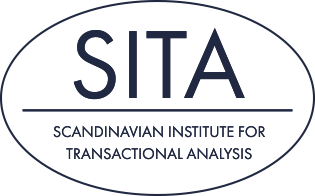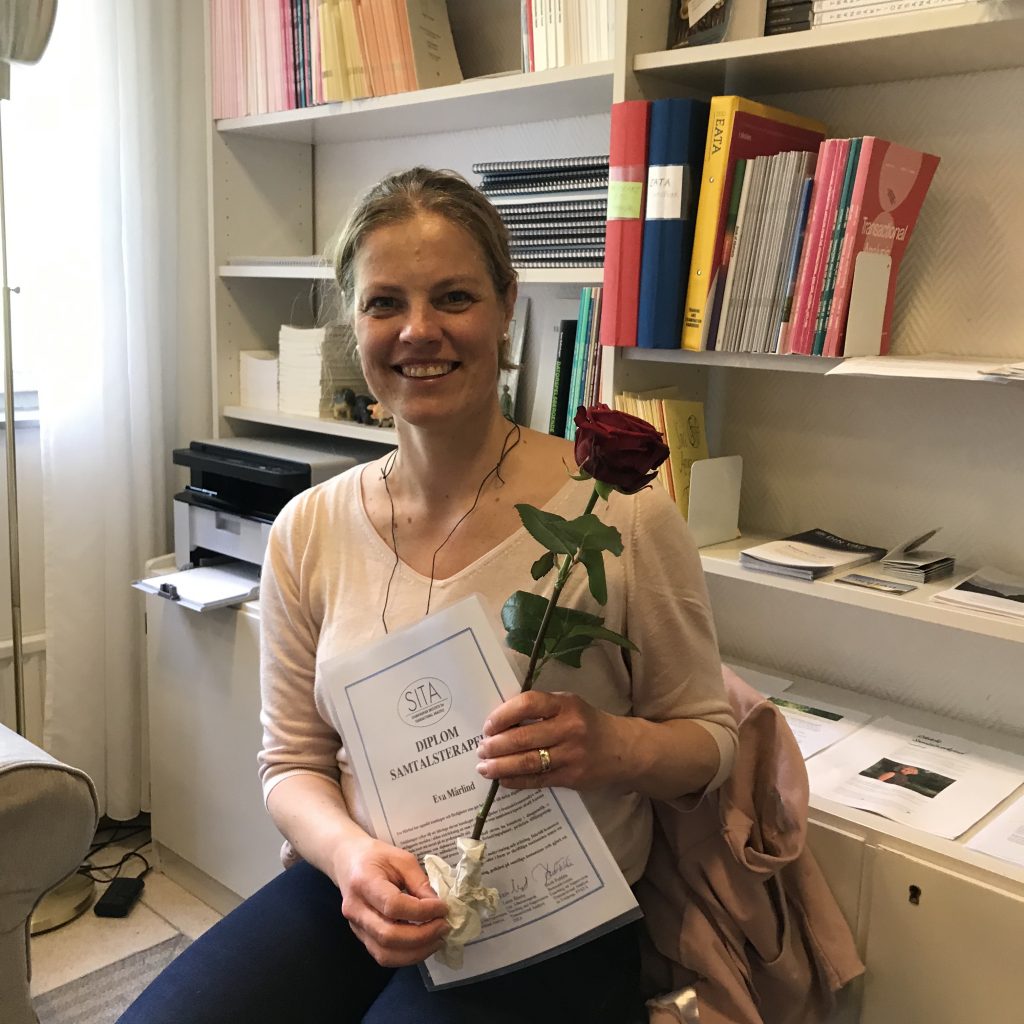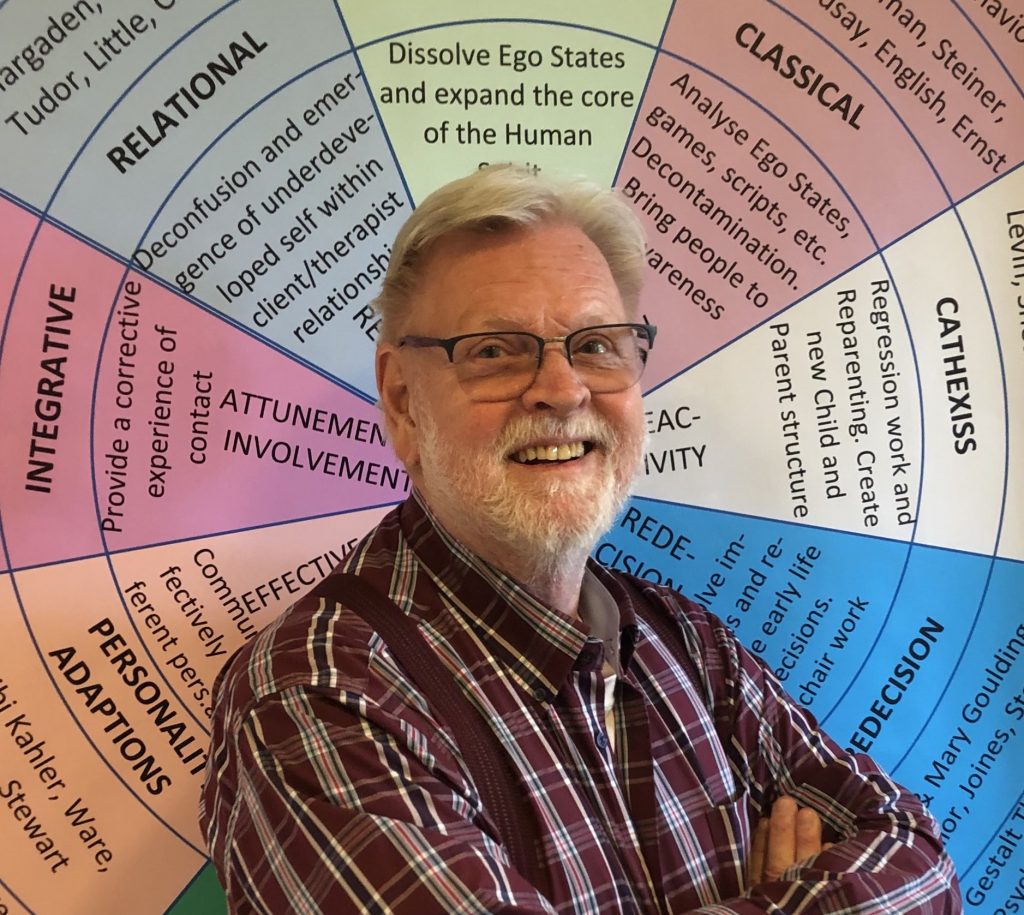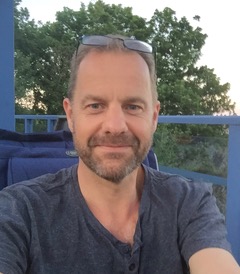
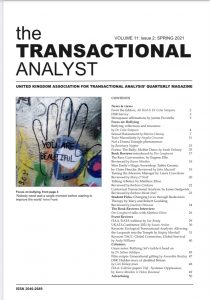
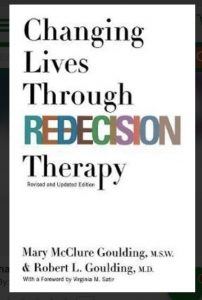 There is a lot of good TA-literature to read as a hungry student and more is published all the time. As an overwiew, “TA Today” and “Into TA” has been enormously helpful to me, but the book that really got me was the book by Mary and Bob Goulding about redecision therapy. Of all the very strong and useful models and theories in TA, for me this is the core one.
There is a lot of good TA-literature to read as a hungry student and more is published all the time. As an overwiew, “TA Today” and “Into TA” has been enormously helpful to me, but the book that really got me was the book by Mary and Bob Goulding about redecision therapy. Of all the very strong and useful models and theories in TA, for me this is the core one.
The redecision theory is, as the Gouldings presents it, an amazing combination of simplicity and complexity which is very powerful and life-affirming. Whatever your history is or your impasses and internal conflicts are, there is a way of working it through. There is a way to reach a deeper understanding of yourself and the choices you’ve made throughout your life. And there’s a way to change this, to make a new decision in life of who you are and who you actually want to be and a way to gain a deep and profound feeling of OK’ness and acceptance of yourself.
This is the hope and the strength that the redecision therapy provides and communicates.
Here I’ll bring up two issues that the book deals with, which I believe are good examples of “small changes” in daily life but actually reaches much deeper into your script believes;
In the book they are very clear about the importance of how we use our language. They intervene whenever a client chooses to speak in terms of “it” or “one” instead of using “I”. Or when a client uses words like “maybe” or expressions like “I will try to do that” meaning that they actually wont.
It’s very interesting to read and explore the power of how we use the language in this way and what a huge difference the change from the general “One can/must..” to the specific “I will/shall…” do to yourself, and how hard it is to make this change actually last.
The Gouldings are very good at reading their clients and listening “beyond” what’s being said during a session, they expose the hidden transactions and lead the client to the “real issue”. They confront the impasse very clearly but always in a very caring way – the goal is always that the client understand that they deserve to feel OK about themselves.
About the gallows laughter, Mary and Bob Goulding are very clear in confronting the use of it because it is a way of discounting and therefore confirming one’s script. I believe it’s a lesson to be learned there, not only in a therapy session but for life in general. To avoid or confront the gallows laughter, either if you use it yourself or if you hear it from someone else, is a way of not getting into gameplaying but instead stay in your Adult. It is important to remember that the gallows laughter always means discounting in one way or another.
As were the case with how we use our language, the avoidance of the gallows laughter is also a way to challenge our own script believes and can therefore also work as a true game changer in one’s life. On the other hand – a genuine laughter and sincere humor are very important parts of the treatment so it’s a useful skill to know the difference.
The book “Changing lives through redecision therapy” contains so much valuable reading and here I’ve just pinpointed three issues, the power and humanity of the theory itself, the importance of how we express ourselves and finally the importance of not to discount ourself and others by the gallows laughter.
Studying TA means of course to read much of the existing literature over and over again, to learn more about the theory and also about yourself and to keep on exploring new things. This book really contributes to all that. I can sit down and just read a chapter or two and then got some new thoughts to reflect on about me, my life and my history. Or I can read it as a reminder of getting “back on track” for what I feel is the essential things and thoughts about TA – and about life itself.
And who am I?
I’m a 51 years old opera singer from Gothenburg in Sweden. I came across TA in therapy 1999 and it really made a major impact on my life. Since 2015 I’ve been studying it at an institute here in Gothenburg and right now signing up for a CTA exam in the field of counselling.
Joachim Ottosson
